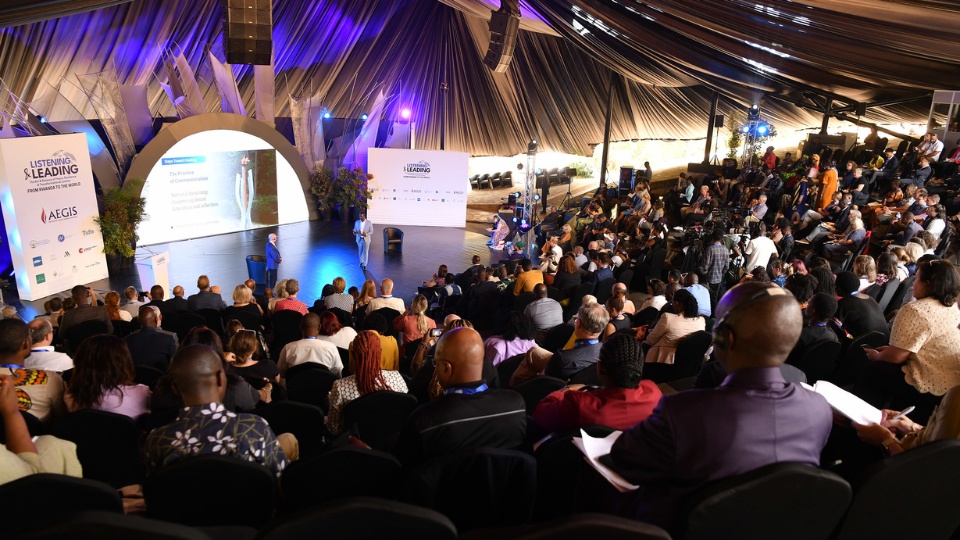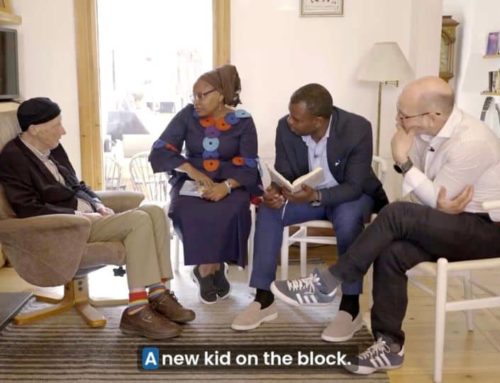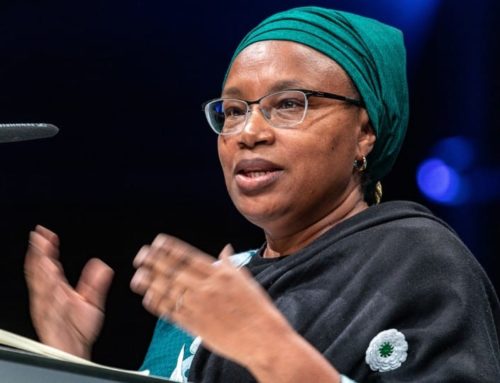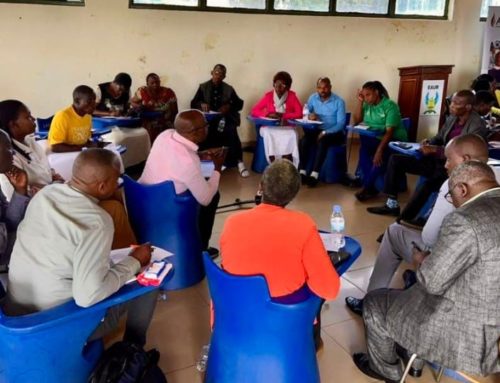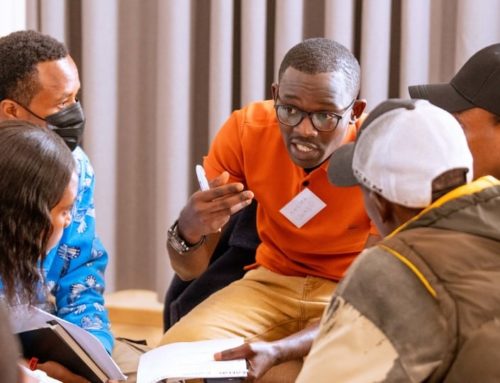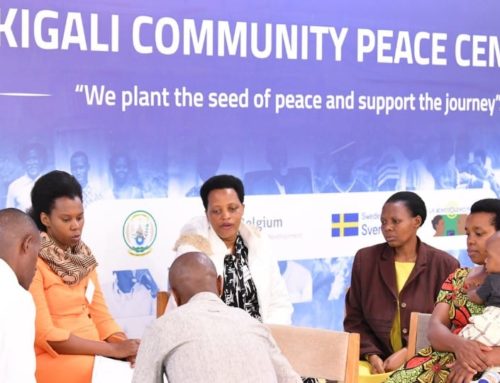From July 26th to 28th, the Aegis Trust hosted an international conference titled “Listening and Leading: The Art and Science of Peace, Resilience and Transformational Justice” in Kigali. Co-hosted by the University of Rwanda, Tufts University, and the Ministry of National Unity and Civic Engagement (MINUBUMWE), the event brought together over 500 distinguished experts, internationally recognized scholars, peace practitioners, educators, policymakers, changemakers and community builders. All were united by their shared commitment to reconciliation, forgiveness, peace, and transformational justice.
One of the conference’s standout moments was the Aegis Trust’s announcement regarding the establishment of the Isōko Peace Institute— an international institute dedicated to fostering peace and promoting the practice of peaceful coexistence. To be located in Bugesera near Rwanda’s new international airport, the Isōko Peace Institute will serve as a global hub for peace initiatives, benefiting communities in Rwanda, Africa and beyond.
In his opening remarks, Hon. Dr. Jean-Damascène Bizimana, Rwanda’s Minister of National Unity and Civic Engagement, praised Aegis for its efforts in preserving the memory of the Genocide against the Tutsi and its peacebuilding initiatives. “We have worked on preserving the memory of this genocide through the crucial work of archiving. This would not have been possible without the hard work of Aegis Trust, which has played a vital role in memory preservation and peacebuilding,” he stated. The Minister also pledged the Rwandan government’s continued support for the Isōko Peace Institute.
In a special video message, President Bill Clinton acknowledged Aegis Trust’s global leadership in peace and reconciliation efforts. He lauded the organization’s role in establishing the Kigali Genocide Memorial and launching the Isōko Peace Institute. He commended Aegis for tirelessly working to prevent atrocities and building a better world.
Ms. Jenny Ohlsson, Chair of the Board of Trustees at Aegis Trust, urged global unity in peace efforts, citing Rwanda’s unique example. “In a world that seems broken, where peace often seems impossible, let’s all come together to learn about peace in Rwanda—a country that has a lot to teach us,” she remarked. Stefania Giannini, UNESCO Assistant Director-General for Education, emphasized that sustainable peace could only be achieved by changing how people think, as the world is shaped by individuals’ perceptions. Alice Wairimu Nderitu, UN Under-Secretary-General and Special Advisor on the Prevention of Genocide, stressed the collective responsibility of building a peaceful world and urged attendees to support the Isōko Peace Institute. “The responsibility of building a more peaceful world is a duty for all of us, so let us support the Isōko Peace Institute as it works to create conversations, safe spaces, and mechanisms from which we can all learn,” she said. Johanna Teague, the outgoing Swedish Ambassador to Rwanda, spoke emotionally about leaving Rwanda, emphasizing the importance of mutual support and unity. “As I leave Rwanda, I am convinced that we are nothing without each other, and we must work together to achieve peace,” she said.
Hon. Claudette Irere, Rwanda’s Minister of State for Education, discussed the country’s shift towards a competence-based education system that encourages critical thinking and creativity. She commended the Aegis Trust for its contribution to this shift: “Today the education system has changed, the teaching methodology is now competence-based allowing critical thinking and creativity to ensure that students are at the center of their own learning, and Aegis Trust has been part of this as their peace education has been incorporated in the national curriculum”, said Hon. Claudette.
From the justice perspective, on the role of accountability in genocide prevention, Dr. Serge Brammertz, the UN Under Secretary-General and Chief Prosecutor of the IRMCT, shared his nuanced view on the reconciliation process, which aligned with the broader theme of peacebuilding at the conference: “Sometimes we get the criticism that our work is preventing reconciliation from taking place. Well, justice alone cannot achieve reconciliation. Reconciliation needs to come from within a society by the communities affected, victims and perpetrators.”
During the conference, the Aegis Trust signed three important Memoranda of Understanding (MOUs):
1.With the United Nations Office on Genocide Prevention and the Responsibility to Protect: Aimed at cooperation in preventing genocide and incitement to violence.
2.With the Ministry of Education: Supporting the establishment of the Isōko Peace Institute.
3.With MINUBUMWE: Defining the implementation of the Isōko Peace Institute in Bugesera District.
The conference coincided with the 10th anniversary of the Ubumuntu Arts Festival, held annually at the Kigali Genocide Memorial. Delegates had the opportunity to attend Africa’s premier performing arts event for social change, engaging with performances that highlighted peace, resilience, and social justice.
The conference concluded with the presentation of the 2024 Aegis Award to three Central African faith leaders who played a crucial role in preventing further violence in the Central African Republic during the crisis following the 2013 Seleka takeover and the subsequent Anti-Balaka reprisals. The Aegis Award honours humanitarian actions that go beyond the call of duty, recognizing those who have intervened in exemplary ways to preserve the value of human life during times of war, persecution or genocide.
This event was made possible through the collaborative efforts of co-hosts the Ministry of National Unity and Civic Engagement, the University of Rwanda, and Tufts University, as well as the invaluable support of sponsors including Templeton World Charity Foundation, Templeton Religion Trust, Auburn Seminary, Marriott Corporation, Bridgeway Foundation, One Acre Fund, Champion Humanity Enterprise, and the Medical College of Wisconsin.
Sessions from the ‘Listening and Leading’ conference have their own playlist on the Aegis Trust’s Youtube channel here.

